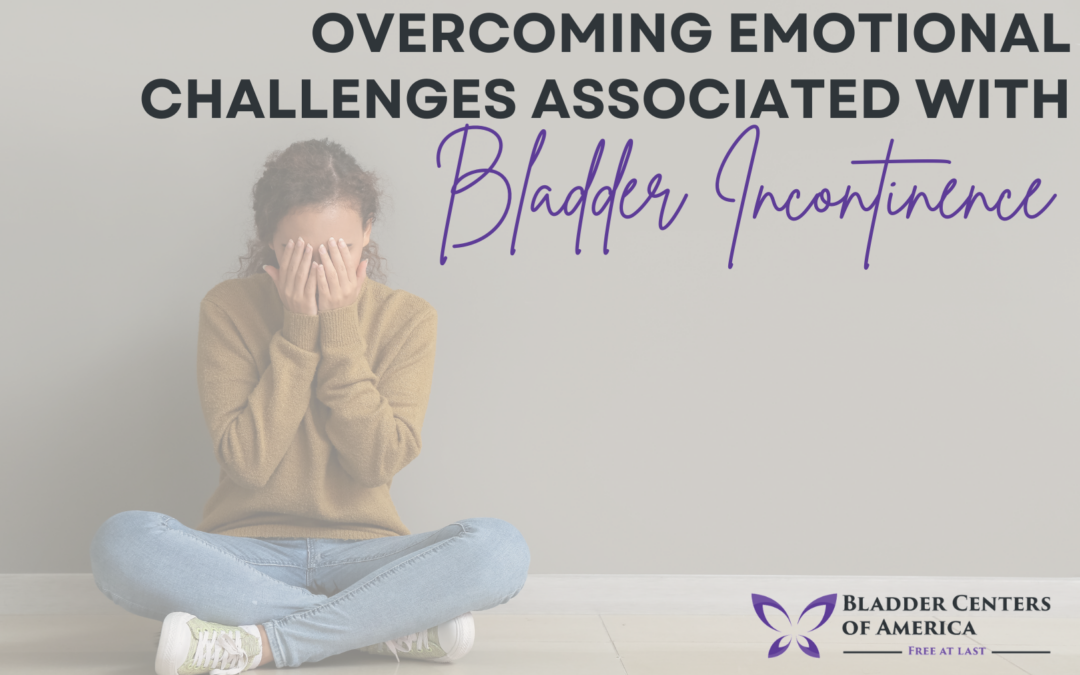Living with bladder incontinence can be a difficult and emotionally challenging experience, but it does not have to define your life. With the right care and support, you can manage your incontinence in ways that mean you have a happy and fulfilling life. It is important to recognize there are many treatments available that can help reduce discomfort and manage symptoms. Finding the right one for you may take some time but will be well worth it in the end.
Definition of bladder incontinence and its emotional impacts
Bladder incontinence is a medical condition in which an individual has difficulty controlling their bladder, leading to the involuntary release of urine. This can be caused by many factors such as physical damage following childbirth, weak muscles or nerves, or even aging. The emotional impact of bladder incontinence can be significant as it affects how one behaves in social situations and can lead to feelings of embarrassment and isolation. Those with this condition need to discuss their situation with healthcare providers and family, so they can get the support they need.
Causes and Contributing Factors for Bladder Incontinence
Bladder incontinence, also known as urinary incontinence, is a common condition that affects millions of people around the world. It can be caused by several different factors such as physical problems or damage to the bladder muscles and nerves, pelvic surgery, childbirth, aging, or diseases like diabetes or stroke. Other contributing factors include obesity, smoking, constipation, and certain medications. Treatment varies depending on the cause but may include lifestyle changes like exercise, dietary adjustments, and medications. In some cases, surgery may be required. Living with bladder incontinence can have a significant impact on quality of life but with the right treatment, it can be managed successfully.
Coping Strategies for Managing Emotions Related to Bladder Incontinence
Bladder incontinence is a common condition that can cause overwhelming feelings of embarrassment and shame. The good news is that there are many coping strategies you can use to help manage these emotions. Some of the most effective strategies include talking to a doctor or therapist, joining an online support group, and utilizing relaxation techniques such as deep breathing and mindfulness meditation. Additionally, it’s important to focus on what you can control, such as sticking to your bladder-control plan, exercising regularly, and eating a healthy diet. By implementing these tools into your life, you’ll be able to develop healthier ways of managing your emotions associated with bladder incontinence.
Develop Self Awareness & Find Support
Developing self-awareness is an essential part of personal growth. It can help us identify our strengths, weaknesses, and capabilities. It can give us a greater understanding of who we are and what we have to offer to the world. By having a better understanding of ourselves, we’re able to make better decisions that will positively contribute to our lives. However, it can be difficult to find the support needed to advance our self-awareness journey. Asking for help from friends and family or joining groups with similar interests can ease this process. Most importantly, we must show ourselves grace and take time for ourselves to unlock our potential.
Acceptance & Positive Coping Thoughts
Acceptance is an important part of moving forward and dealing with difficult situations. It can be hard to accept something that we don’t want to happen, but it also helps us to cope more positively. Taking the time to recognize and understand our emotions does not mean that we should stay stuck in them, but rather that by accepting them we can gain perspective and move forward constructively. Positive coping thoughts can help us reach acceptance, as they remind us of the things that are still possible even when life takes an unexpected turn. There is always hope, and focusing on the good can keep us motivated during times of struggle.
Exploring Treatment Options
Exploring treatment options can be a daunting task. It is important to take the time necessary to evaluate all of your available choices and to make sure that you select the best option for your health and well-being. When looking into treatments, consider seeking out multiple sources of information, talking with healthcare professionals, and asking questions about any potential treatments. Doing your homework and staying informed on your treatment options can help ensure that you make the best possible decision for yourself.
Emotional challenges associated with bladder incontinence can be difficult to overcome, but it is possible. With the help of medical professionals, family members, and support groups, people can learn to manage their condition better, accept it as part of their life, and live with dignity. It is important to remember that although this struggle may seem daunting, having a positive attitude, realistic goals, and a proper treatment plan can help individuals live their best life despite their condition.

